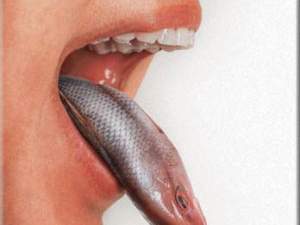

MedFriendly®


Cacogeusia
Cacogeusia is a bad taste that is typically defined as
not being due to a specific food, drug, or other ingested
substance or that occurs in reaction to a substance
usually considered to be pleasant. However, sometimes
the definition is used to describe a bad taste after
ingesting a bad tasting substance. There are different
types of cacogeusia which have different names
depending on the type of taste. For example,
metallogeusia is a perceived metallic or bitter taste.
This has been described in some people after ingestion
of pine nuts.
FEATURED BOOK: Handbook of Olfaction and Gustation
Cacogeusia is a frequent complaint in epilepsy (recurring episodes of seizures). A seizure
is an overexcitable state of nerve cells in the brain, sometimes leading to sudden, violent,
involuntary contractions of a group of muscles and/or manifestations of decreased
awareness of environmental surroundings. Cacogeusia often occurs immediately before
a seizure and can serve as a cue that a seizure is about to occur.
There is a specific type of epilepsy known as uncinate epilepsy characterized by a
dreamy state and bad tastes (cacogeusia) and bad smells (known as cacosmia) that are
hallucinations. A hallucination is a strong sensory perception that one has of an object or
event while awake, when no such object or event exists.
"Where Medical Information is Easy to Understand"™
While the cause of cacogeusia can be psychological, the cause is
usually due to diseases of the tongue, mouth, esophagus, stomach,
and upper respiratory tract. A cavity in the tooth can cause
cacogeusia due to rotting of the tooth and food inside the cavity
space. Gum disease can also cause cacogeusia. Examples include
gingivitis (gum inflammation) and periodontitis (inflammation and
infection of ligaments and bones that support the teeth). A ligament
is a tough band of tissue that attaches to joint bones. A dry mouth
can cause cacogeusia, usually because decreased saliva
production increases the risk of infections in the mouth, gums, and
teeth.
Cacogeusia can also be caused by mouth sores and mouth cancer. Cancer is any of a large group of
malignant diseases characterized by an abnormal, uncontrolled growth of new cells in one of the body
organs or tissues. Another possible cause is stomatitis. Stomatitis is inflammation of the mucous
membrane (type of thin tissue lining) of the mouth. Inflammation of the tonsils and pharynx can also cause
cacogeusia. The tonsils are a pair of oval masses at the back of the throat. The pharynx is a passage that
connects the back of the nose and mouth to the esophagus.
Inflammation of the stomach can cause cacogeusia. Cacogeusia can be caused by gastroparesis, in
which the stomach has a reduced ability to open its contents despite no blockage present. Severe cases
of GERD (gastroesophageal reflux disease) can cause cacogeusia (usually in the morning). GERD is a
condition in which contents from the stomach flow back up to the esophagus.
Conditions affecting the airways and lungs (usually infectious ones) can cause cacogeusia. One example
is a lung abscess. An abscess is a well-defined collection of pus that has escaped from blood vessels and
has been deposited on tissues or in tissue surfaces. Another example is tuberculosis. Tuberculosis is a
type of infection that usually affects the lungs. Bronchiectasis can cause cacogeusia. Bronchiectasis is
an abnormal condition characterized by irreversible stretching open and destruction of the bronchi walls.
The bronchi are small airways connected to the lungs.
Diabetes mellitus can cause cacogesia. The cause of cacogeusia in diabetes mellitus is usually
ketoacidosis. Diabetes mellitus is a complex, long-term disorder in which the body is not able to effectively
use a natural chemical called insulin. Ketoacidosis is the production of acids and poisonous chemical
substances called ketones due to difficulty breaking down fats, especially when the body does not
produce insulin.
Lastly, some medications can cause cacogeusia. This includes birth control pills, medications that fight
infections, and some proton pump inhibitors. Proton pump inhibitors decrease the production of acid by
stopping the pump that releases acid into the stomach.
Cacogeusia is sometimes associated with bad breath (halitosis). Cacogeusia comes from the Greek word
"kakos" meaning "bad," and the Greek word "geusis" meaning "taste." Put the two words together and you
have "bad taste."















